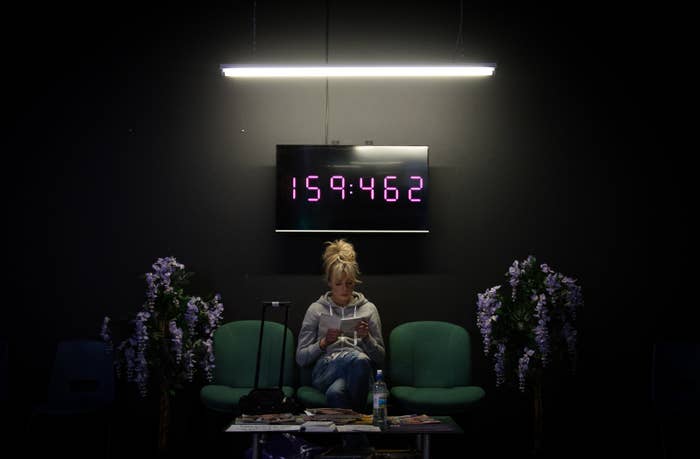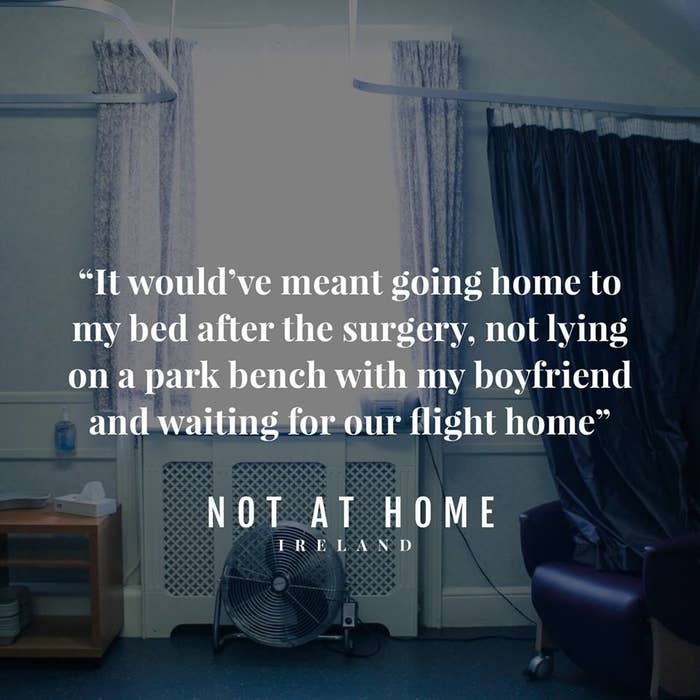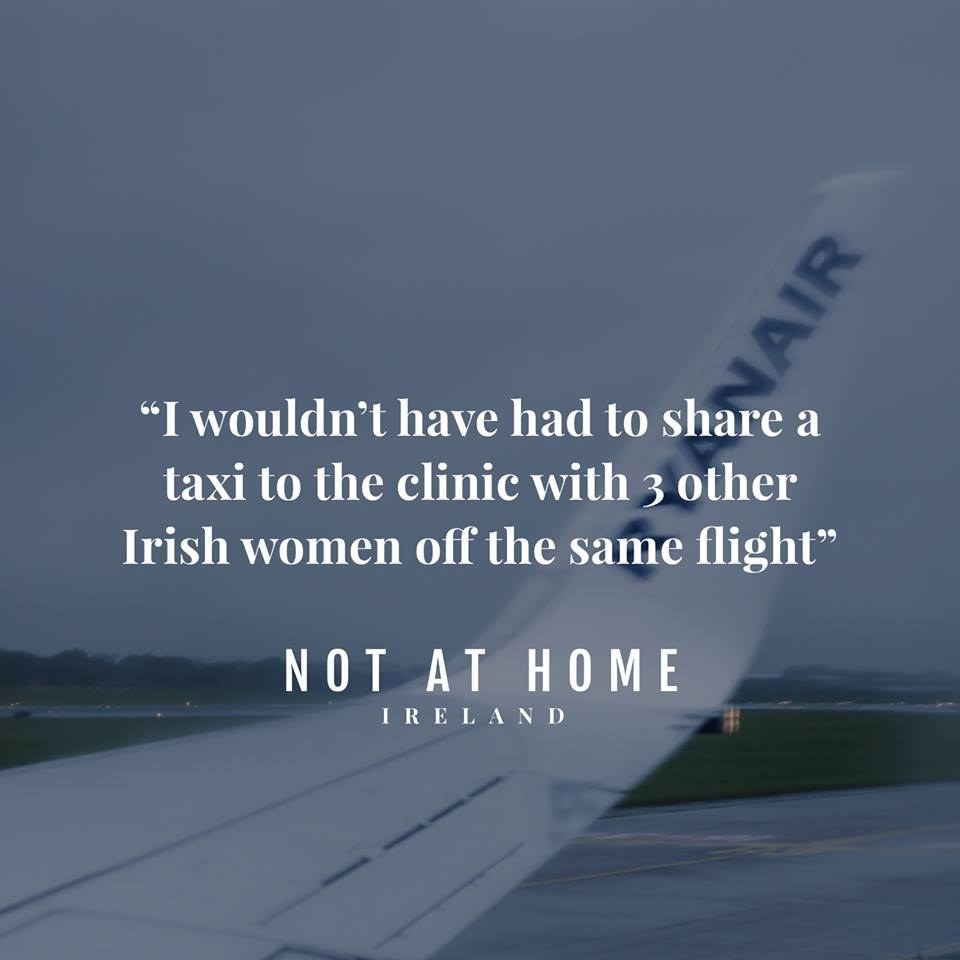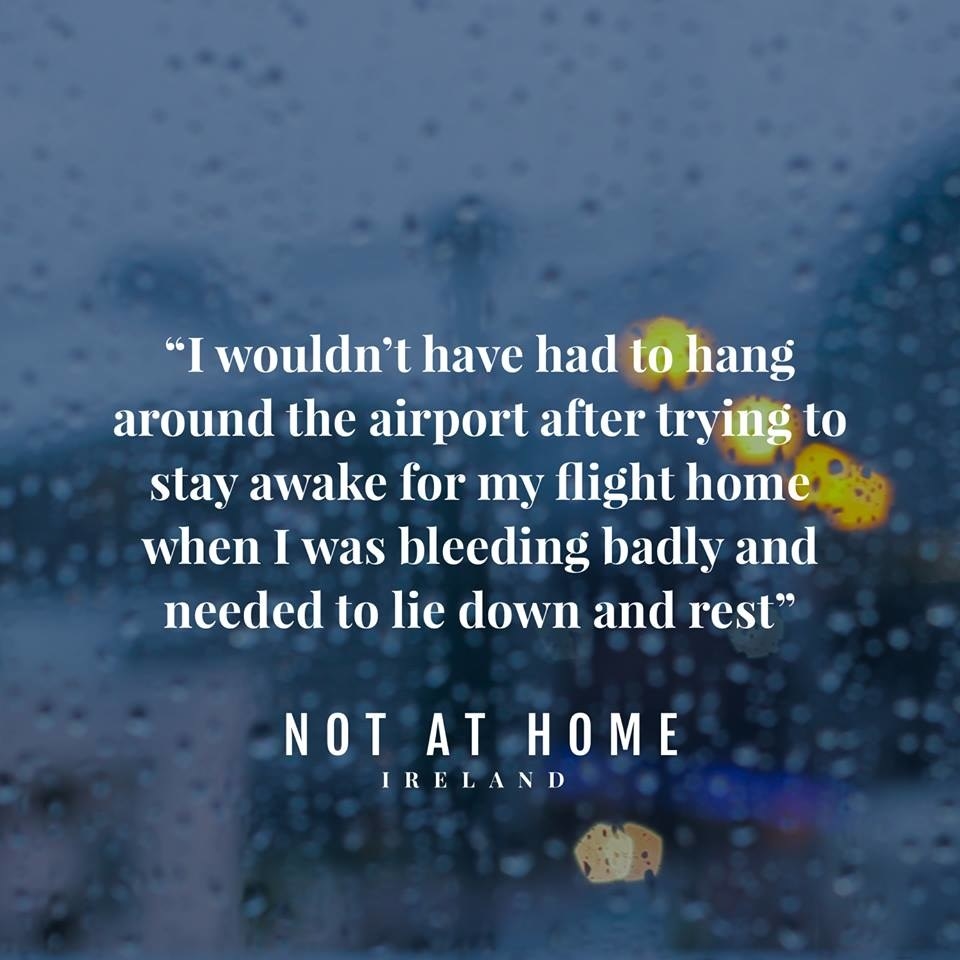
Stories from women who have had to travel to England from Ireland and Northern Ireland for abortions take centre stage at the Not at Home exhibition in London this weekend.
Abortion is illegal in almost all circumstances in Ireland. It is also illegal in Northern Ireland, where the Abortion Act 1967, which allows women access to the procedure in the rest of the UK, was never extended. An estimated 10 women per day travel from the island of Ireland to access abortion in England.
Artists and abortion rights activists Grace Dyas and Emma Fraser have spent the past two years collecting the stories of women who have made this journey, dating from 1983 to now, and will tell every single one of them during a performance of Not at Home at the Platform theatre in Southwark on 16 and 17 December. They hope to raise money to take the show around Ireland ahead of a referendum on legalising abortion next year.
"I don’t think people are aware of the hardships of having to travel," Dyas told BuzzFeed News. She hopes the exhibition, which has already been shown in Dublin, will help build awareness of the secret journey so many Irish women make.

"These women are invisible most of the time," she said. "They’re just referred to as statistics, but there’s 10 a day travelling to the UK and you don’t hear anything about who they are and what their experiences are. We’re trying to highlight and make visible their reality."
Dyas said the often moving stories highlight the consequence of abortion laws in Ireland, which end up forcing women to travel rather than preventing them from having abortions.
"One of the earliest stories we got was about a woman who had a cup of tea in the airport on her way over to Leeds, and when she got to the clinic they said she couldn’t have the procedure because she’d had the tea, meaning she couldn't have an anaesthetic," Dyas said.

"They told her she’d have to come back another day, but that was impossible for this woman. Travelling from Ireland she’d arranged all her work and everything around it.
"She had to have the procedure with no anaesthetic. So there’s an Irish woman in an English clinic having the procedure with no anaesthetic. I just felt that was really a consequence of the law."
Not at Home is intended to be neither pro- nor anti-choice, but instead aims to educate about the reality of women travelling for abortion.

"It’s about creating a space for the undecided," Dyas said. "Because they’re complex issues to think about. Our argument is not about whether you agree with having an abortion or not, it’s about the fact that Irish women are traveling and they’re having this procedure not at home.
"Women are away from home, more often than not in the UK, and how does that sit with you?"
